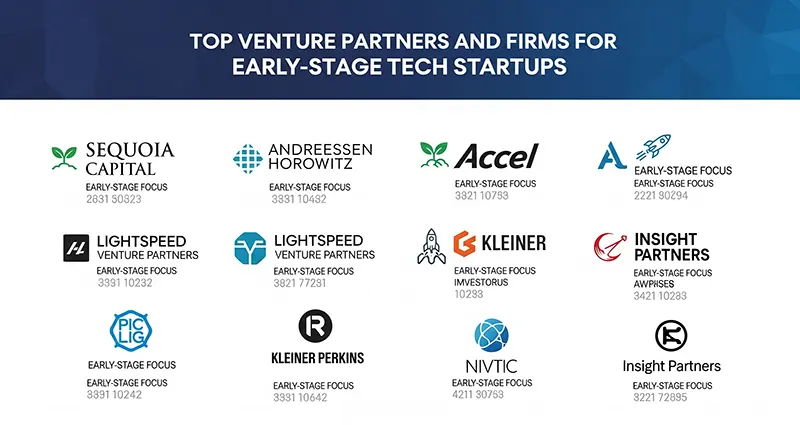When a startup seeks venture capital, it’s not just about the money; it’s about finding a venture partner who brings strategic value, network connections, and hands-on expertise. The right partner can be the difference between a company that merely survives and one that dominates its market. While the venture capital landscape is vast, certain partners and firms have established themselves as leaders in supporting early-stage tech startups. Here are some of the top venture partners and firms known for their success in this space.
These firms are known for identifying and nurturing innovative companies from their earliest stages, often with a deep focus on specific sectors like AI, SaaS, fintech, and more.
Andreessen Horowitz (a16z)
Andreessen Horowitz, or a16z, is a dominant force in Silicon Valley. The firm is known for its “all-in” approach, providing startups with extensive support beyond just capital, including operational advice, recruiting services, and a powerful network. They have a strong reputation for backing transformative companies in areas like AI, cryptocurrency, and enterprise software. A16z’s partners are often former founders and executives, bringing firsthand experience to the table.
Sequoia Capital
One of the most legendary names in venture capital, Sequoia Capital has an unparalleled track record of backing generation-defining companies from their infancy, including Apple, Google, and Airbnb. While a global firm, its early-stage teams are known for their founder-friendly approach and ability to spot high-potential startups before they become obvious successes. They focus on providing founders with the guidance and resources to build enduring companies.
Accel
Accel is a global venture firm with a history of supporting some of the most successful tech companies, such as Facebook, Dropbox, and Spotify. They are particularly strong in early-stage investing, with a focus on both consumer and enterprise software. Accel’s partners are highly regarded for their domain expertise and collaborative style, often working closely with founders to navigate key milestones like product-market fit and go-to-market strategy.
Key Traits of a Great Venture Partner
Choosing a venture partner is a decision that will have a long-lasting impact on your company. It’s crucial to look beyond the firm’s brand and focus on the individual partner you’ll be working with directly. Here’s what to look for:
- Deep Domain Expertise: The best partners have a profound understanding of your industry, technology, and market. This allows them to provide actionable advice and make valuable introductions rather than just generic feedback.
- Strategic Network: A partner’s network is often as important as their capital. Look for someone who can connect you with potential customers, future employees, and key advisors.
- Founder-Friendly Approach: An ideal partner respects the founder’s vision and autonomy. They should be a collaborative guide, not an overbearing boss. Talk to other founders in their portfolio to understand their communication style and level of involvement.
- A Shared Vision: Ensure your partner is aligned with your long-term goals and timeline. A partner looking for a quick exit may push you to make decisions that don’t align with your company’s mission or long-term growth.
How to Get on Their Radar
Attracting the attention of top-tier venture partners requires more than just a great idea.
- Build a Strong Network: The vast majority of top-tier deals come from warm introductions. Instead of cold-emailing, spend time building relationships with other founders, angels, and operators who can vouch for you.
- Demonstrate Traction: Early-stage VCs are looking for signals of success. This could be anything from a strong user growth curve to early revenue, a compelling product demo, or key partnerships.
- Craft a Compelling Narrative: Your pitch deck and story should clearly articulate the problem you’re solving, the size of the market, and why your team is uniquely qualified to win. The goal is to make the investor believe in your mission as much as you do.










